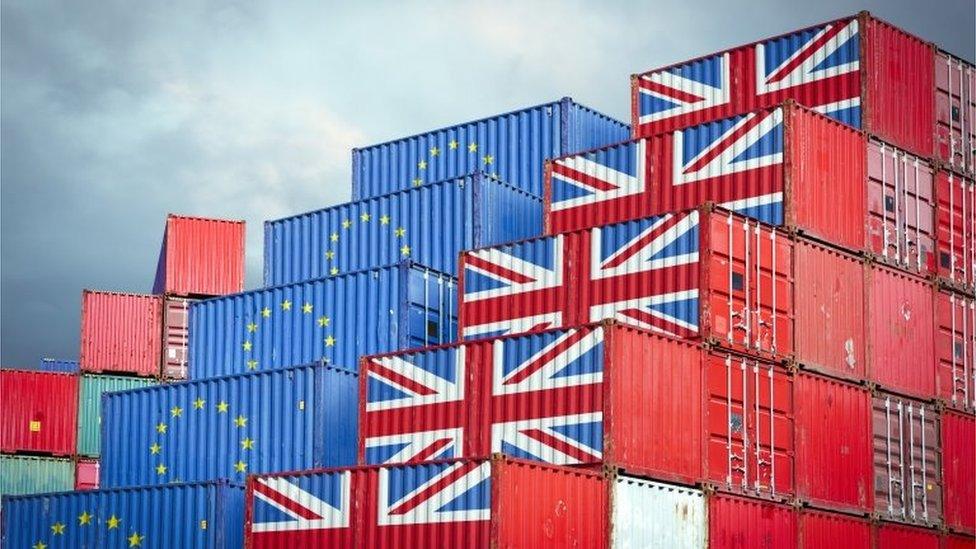MPs to vote again after Lords defeat Brexit bill
- Published

MPs will vote again later on government plans to protect trade between the four nations of the UK after Brexit.
Peers pressed again last night for the Internal Market Bill to give Scotland, Wales and Northern Ireland a greater say over trading rules within the UK.
The bill will now return to the Commons, as ministers continue to insist it is to help firms trade across the country.
Opponents argue it will centralise power to Westminster after Brexit.
After the Brexit transition period ends on 31 December and the UK stops following EU rules and regulations, the devolved governments will gain powers in areas such as animal welfare, currently managed at the EU level.
The UK government says it will have to introduce the legislation to recognise standards drawn up by the devolved administrations.
The Scottish and Welsh governments argued this would undermine their ability to make their own rules.
Opponents have also claimed the bill will stymie future planned discussions to agree UK-wide standards, by effectively giving Westminster the final word on which standards should be allowed.
The government has now been defeated 14 times on this bill, and MPs will have to decide whether to overturn the Lords' latest changes.
If they do, the bill will return - or "ping-pong" - to the Lords on Monday.
Time to smell the post-Brexit coffee? How the UK's internal market may work from 2021
Amending the bill
On Wednesday, Labour, Lib Dem and crossbench peers again voted to amend the bill to allow devolved administrations a wider remit in diverging from UK-wide rules.
They also approved amendments to give them a greater say over a new UK fund to replace EU regional spending, and in drawing up rules governing state support for businesses.
The latest defeats came despite an offer from the government to increase consultation with the devolved governments before it can enforce a UK-wide approach.
Opposing the amendments, Cabinet Office Minister Lord True argued they would bring increased uncertainty for businesses.
He added they would prevent the UK government from regulating to ensure goods from one part of the UK can continue to be sold in another, even where there is an "urgent need to do so".
But he said ministers would "continue to reflect further and continually on these matters," ahead of the bill's return to the Commons.
Northern Ireland clauses
Peers also voted to remove controversial sections from the bill which would have allowed ministers to override the UK's Brexit divorce bill.
The government agreed to drop the clauses on Wednesday, following an agreement with the EU over how trading rules relating to Northern Ireland's borders should work in practice.
The clauses - which would have allowed ministers to breach international law - had threatened to jeopardise ongoing talks between the UK and the EU over a post-Brexit trade deal.
Peers have previously sought to take them out of the bill, only to see them later reinserted by MPs.
But Lord True said the agreement on Wednesday meant they were "no longer needed," and the government was happy for them to be removed.
Labour's shadow attorney general Lord Falconer of Thoroton said: "I'm glad that the government has retreated.
"I do think it's damaged the position of this country, and I also think it shows a terrible misjudgement."
In Cardiff members of the Senedd also voted to reject the bill, after claims from Labour it would "neuter" devolution.


- Published9 December 2020
